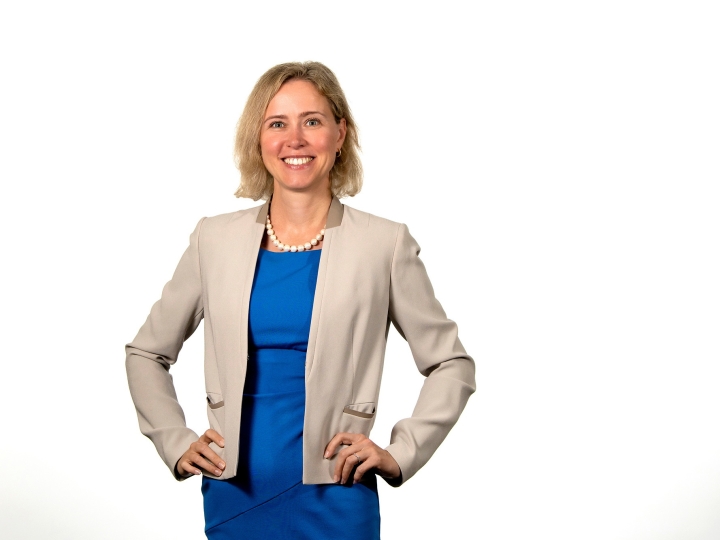
Bucknell Professor Finds Benefits of Having a Woman CFO in Study
March 31, 2022
Professor Kate Suslava, accounting, is co-author of the study showing the benefits of having a female CFO. Photo by Gordon R. Wenzel
Despite far fewer women than men holding top finance positions, women chief financial officers (CFOs) may be the better choice for the role, according to new research of earnings calls from 2,800 U.S. companies over a 10-year period, co-authored by Bucknell Freeman College of Management professor Kate Suslava, accounting.
Suslava; Julia Klevak, vice president, quantitative programming & research technology at PGIM Quantitative Solutions; and Joshua Livnat, a professor emeritus of accounting at New York University Stern School of Business, collaborated on the study, which summarized analysis of approximately 105,000 corporate earnings calls from 2009 to 2019.
According to Suslava, women CFOs are more concise, more conservative in their tone, more straightforward and use more numbers to illustrate their point. On the flip side, the study found that men CFOs tend to be overly confident/optimistic, muddy the water with euphemisms and clichés, and use more complex words and sentences.
"Women CFOs use what we call 'careful verbal behavior,' so we also looked at men who use this as well to see if those behaviors also benefit men," Suslava says. "We found that for men CFOs who behave more like women CFOs, their stock prices go up more than men CFOs who behave less carefully. Therefore, the market rewards careful verbal behavior for both genders."
Suslava has conducted past research on the use of corporate euphemisms, one of the linguistic tools used by managers to soften their explanation of poor company performance in earnings calls. In the new study, she found that women use them less frequently than men.
"We study fog index, which measures obfuscation — language complexity and use of euphemisms and clichés — and it looks like women obfuscate less and use more straightforward language," Suslava says. "They use less complex language when they talk, so they may be more straightforward."
The research is probably good news for women considering finance careers. Suslava hopes the study will stimulate more women to enter the finance industry, where she reports that women are currently severely underrepresented.
"The gender bias is just huge [in finance]," she says. "The message to women is that you can do it, and you can be adding a lot of value to a company if you go into this industry, stick around and don't give up."
Suslava admits that the fact there are so few women in the field may have affected their findings. Only 11% of the CFOs in their sample were women, and they may be more effective communicators on earnings calls because they represent true "stars in the field," as opposed to the men, who may have more talent diversity among their much larger sample.
But regardless of their numbers, the study still shows that women CFOs communicate differently than men, and they may be more effective communicators because of it.
"The key point is that they're different. There is a gender difference, and this is what diversity is about," Suslava says. "The idea is that when you put diverse people together, they'll generate diverse ideas. What we are showing in this research is that we're not all the same [among CFOs in earnings calls]."
The authors have published the study online and have been presenting the results at professional conferences worldwide. They plan to get their work published soon in a professional journal.

